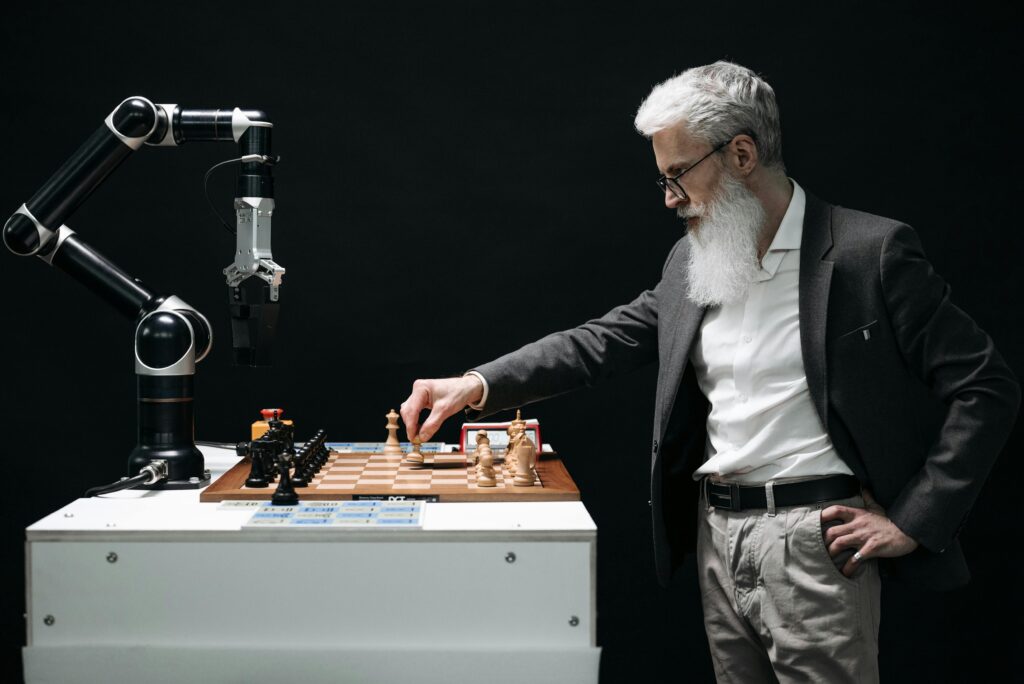Artificial Intelligence (AI) is transforming industries and reshaping the way we live and work. As we approach 2025, AI’s capabilities are set to evolve in exciting ways. In this article, we’ll explore the future of AI, its key trends, and how it will evolve in the next few years.
1. What is the Future of AI in 2025?
The future of AI in 2025 is full of promise. By then, AI will have evolved significantly, becoming more integrated into daily life and business operations. Here’s what to expect:
- More Personalization: AI will play a pivotal role in personalizing experiences across various industries. In retail, for instance, AI will recommend products based on individual preferences, while in healthcare, it will provide personalized treatment plans.
- Autonomous Systems: We’ll see the widespread use of self-driving cars, drones, and robots. These autonomous systems will revolutionize industries like transportation, logistics, and manufacturing.
- AI-Enhanced Decision-Making: AI will help businesses make smarter decisions by analyzing vast amounts of data in real time, providing insights that were previously impossible to obtain.
AI will move beyond basic automation to become a powerful tool that enhances productivity, decision-making, and overall quality of life.
2. How Will AI Evolve in the Future?
AI’s evolution in the future will be shaped by new technological advancements and breakthroughs. Some key factors driving AI’s evolution include:
- Integration with Edge Computing: By 2025, AI will move beyond traditional cloud computing. Edge AI will allow data to be processed directly on devices (like smartphones or sensors), reducing latency and improving real-time decision-making. This will be especially impactful in industries such as autonomous vehicles, healthcare, and manufacturing.
- Advancements in Machine Learning: AI models will become more sophisticated, enabling them to handle complex tasks like deep learning, natural language understanding, and predictive analytics.
- AI That Understands Human Emotions: Future AI will evolve to recognize and respond to human emotions. This will lead to more empathetic virtual assistants and customer service bots, providing a more personalized and human-like interaction.
As AI continues to advance, it will become more integrated with human behaviors and everyday life, making technology even more intuitive and accessible.
3. What is the Future of Artificial Intelligence Trends and Predictions?
The next few years will see AI shaping industries in new and exciting ways. Here are some of the key trends and predictions for AI in 2025:
AI in Healthcare
- Improved Diagnostics: AI will be instrumental in diagnosing diseases by analyzing medical images, genetic data, and patient history. This will lead to quicker, more accurate diagnoses and personalized treatments.
- Robotic Surgery: Surgeons will use AI-powered robots to assist in performing more precise and minimally invasive surgeries, reducing recovery time and human error.
AI in Automation
- Workplace Efficiency: AI will automate routine and repetitive tasks, freeing up employees to focus on more strategic and creative work. This will lead to significant productivity gains across industries.
- Robotics: In manufacturing, AI-powered robots will handle tasks ranging from assembly to quality control, enhancing operational efficiency and reducing costs.
AI in Cybersecurity
- Real-Time Threat Detection: AI will play a critical role in enhancing cybersecurity by detecting and responding to cyber threats in real time. Machine learning algorithms will analyze network traffic and identify potential vulnerabilities, improving data protection.
AI in Creativity
Content Generation: AI will be increasingly used in creative fields like music, art, and writing. AI algorithms will generate original content, making it easier for artists and creators to produce new work quickly.
4. What is the Edge AI Trend in 2025?
Edge AI is one of the most exciting developments in AI technology. It refers to the process of running AI algorithms directly on devices, rather than relying on centralized cloud systems. Here’s why Edge AI will be a game-changer:
- Faster Data Processing: By processing data locally, Edge AI can provide faster responses, reducing latency and enabling real-time decision-making. This will be crucial for applications in autonomous vehicles, smart cities, and industrial automation.
- Enhanced Privacy: With Edge AI, sensitive data doesn’t need to be sent to the cloud for processing. This means that users’ personal information can be kept more secure and private, addressing growing concerns about data privacy.
- Smarter Devices: From smartphones to wearables, more devices will become AI-enabled, making them smarter and more responsive to users’ needs. For example, AI in wearables could monitor health conditions and provide real-time feedback without needing to send data to the cloud.
Edge AI will enable the next generation of intelligent devices, creating more efficient, responsive, and secure systems across industries.

Conclusion
As we approach 2025, Artificial Intelligence will continue to evolve, becoming a central part of our daily lives and transforming industries. From the rise of autonomous systems to the integration of Edge AI, we can expect significant advancements that will improve efficiency, safety, and personalization.
AI will not only automate tasks but will enhance decision-making, improve healthcare outcomes, and revolutionize how we interact with technology. The future of AI is bright, and 2025 will be a turning point in its evolution.
"The future of AI is not just about machines that think; it’s about creating systems that learn, adapt, and enhance human life, shaping industries and innovations for years to come."



